Speakers
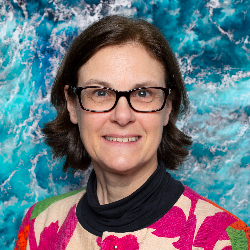
Verity Ahern
University of Sydney
Verity Ahern is the Radiation Oncology Director Western Sydney Local Health District (Westmead and Blacktown Hospitals), with nearly 1 million residents from diverse economic, social and cultural backgrounds and also providing a quaternary referral service. Around 2,000 course of radiation therapy are delivered annually. She is the Clinical co-chair of the proposed National Particle Treatment and Research Centre on the Westmead Precinct which has submitted a business case to the NSW government; and the inaugural chair of the RANZCR Particle Therapy Special Interest Group which has released an updated position statement, drafted a proton-photon comparative planning consensus guideline with ACPSEM and ASMIRT particle therapy special interest group members, and is now documenting a certification pathway in particle therapy. Her clinical practice is in breast cancer and paediatric radiation oncology, enabled by a fellowship at Sunnybrook and Sick Children’s Hospital, then practice at Guy’s and St Thomas’ Hospitals, London, UK.
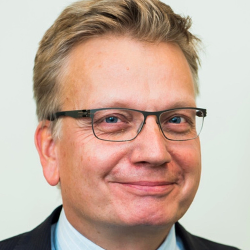
Thomas Bortfeld
Massachusetts General Hospital
Thomas Bortfeld received his Ph.D. in Physics from the University of Heidelberg, Germany, in 1990. Working at the German Cancer Research Center (DKFZ) in Medical Physics, he was instrumental in the early development of intensity modulated radiation therapy (IMRT), including inverse planning algorithms and delivery of IMRT with multileaf collimators (MLC). His work enabled the first clinical deployment of MLC-based IMRT at the Memorial Sloan Kettering Cancer Center in New York in 1995. More than 30 million patients have been treated worldwide based on these techniques since then. In 2001 Dr. Bortfeld was recruited as Director of Physics Research in Radiation Oncology at the Massachusetts General Hospital (MGH) in Boston, where he is now the Chief of the Radiation Biophysics Division, and Professor at the Harvard Medical School. His current research interests are imaging-guided temporo-spatial optimization of treatment delivery, better ways to define the clinical target volume, and the democratization of proton therapy.
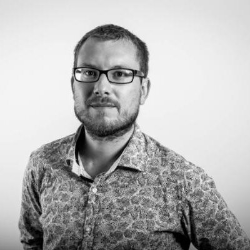
Laurent Collignon
Elekta
Laurent Collignon is a Product Management Director in charge
of the treatment planning portfolio within the ELEKTA product Management group.
Previously, he was employed at IBA, a leading proton therapy manufacturer,
where he had various roles ranging from Software Engineer to Product Manager
for strategic partnerships and innovation. He has a keen interest in innovation
and any technology helping to cure cancer.
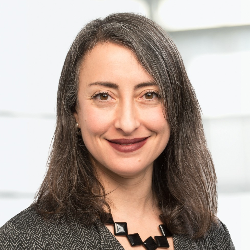
Leah Cowen
University of Toronto
Leah E. Cowen, Ph.D., is Associate Vice President, Research
at the University of Toronto, Professor in the Department of Molecular
Genetics, and co-Founder and Chief Scientific Officer of Bright Angel
Therapeutics, a company that leverages state-of-the-art technologies for
development of novel antifungal therapeutics. She received her undergraduate
degree from the University of British Columbia, a PhD from the University of
Toronto, and pursued postdoctoral studies at the Whitehead Institute,
Massachusetts Institute of Technology. Her laboratory takes an
interdisciplinary approach to understand what allows some microbes to exploit
the host and cause disease, and to develop new strategies to treat
life-threatening infectious disease. Dr. Cowen has an outstanding track record
of excellence in research, scholarship, and education. She has published over
120 high impact research articles. She has been recognized with a myriad of
awards including a Burroughs Wellcome Fund Career Award, Grand Challenges
Canada Star in Global Health Award, Merck Irving S. Sigal Memorial Award,
E.W.R. Steacie Award, and Canada Research Chair in Microbial Genomics &
Infectious Disease (Tier I and Tier II). She has been elected as Fellow of the
American Academy of Microbiology and Fellow of the American Association for the
Advancement of Science. Dr. Cowen has cultivated an international network of
excellence as co-Director of the CIFAR Fungal Kingdom: Threats &
Opportunities program, and is advancing knowledge translation as Chief Scientific
Officer of Bright Angel Therapeutics.

Tim Craig
Princess Margaret Cancer Centre - University Health Network
Tim Craig is a Medical Physicist at the Department of
Medical Physics at the Radiation Medicine Program, Princess Margaret Cancer
Centre - UHN. Dr. Craig received his PhD in Medical Biophysics at the
University of Western Ontario in 2002, and completed his Medical Physics
residency at the Princess Margaret in 2004. Dr. Craig currently serves as the
Clinical Operations Lead and Pediatric Site Lead for Medical Physics. Dr. Craig
has recently led the world’s largest roll out of the RayStation treatment
planning system (TPS) in the Radiation Medicine Program, and continues to serve
as the TPS infrastructure lead. Dr. Craig’s research is focused on the
application of image-guidance and adaptive techniques to radiation therapy,
which includes the optimization of image-guided radiotherapy for prostate and
liver cancers.
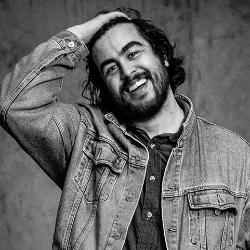
Raymond Dalfsen
Elekta
Raymond Dalfsen is a Clinical Applications
Specialist within the Elekta proton therapy engineering department, focussing
on the research, development and release of proton treatment management
applications. Previously, he was employed at the Royal Adelaide Hospital in
South Australia as a Clinical Coordinator radiation therapist/dosimetrist and
the coordinator of the Australian ‘Proton vs Photon Comparative Planning’
service, providing government funded access for Australian patients to receive
proton therapy treatment overseas. He has a keen interest in clinical problem
solving through workflow innovation, hypo fractionated radiotherapy applications
and advancing the capabilities of proton therapy techniques.
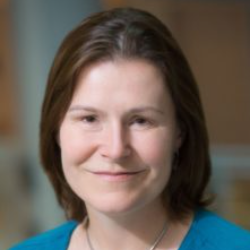
Laura Dawson
Princess Margaret Cancer Centre - University Health Network
Laura Dawson is a radiation oncologist at the Princess Margaret Cancer Centre, and a Professor the Department of Radiation Oncology, University of Toronto. She completed her medical school and radiation oncology residency at the University of Toronto and a fellowship in high precision radiation therapy at the University of Michigan, where she stayed on as a faculty member until 2003, at which time she returned to Canada and developed a liver cancer radiation therapy program at the Princess Margaret Cancer Centre in Toronto. She is an internationally recognized leader in hepatobiliary cancers, hepatic (and other) oligo-metastases and in the use of advanced radiation technologies, including stereotactic body radiation therapy (SBRT) and image guided radiation therapy (IGRT).
Her research has focused on the safe implementation of advanced radiation therapy technologies in the treatment of liver cancer, and in normal tissue toxicity avoidance. She has led numerous phase I/II clinical trials of liver SBRT, and is presently the PI of RTOG1112, an international randomized trial of SBRT for locally advanced hepatocellular carcinoma, and HE.1, a CCTG randomized trial of low dose whole liver radiation therapy to treat painful primary and metastatic liver cancers. She has published over 180 scientific papers. She has received numerous awards for her teaching and research, and her research has been funded by the NIH, CIHR, NCIC and the Canadian Cancer Society. She has served on the board of directors of ASTRO, where she was the chair of the education council, and she is a passionate teacher, having supervised hundreds of residents, fellows, observers and graduate students, many who have developed their own liver cancer SBRT programs under her mentorship.

Jürgen Debus
Heidelberg Ion-Beam Therapy Centre
Jürgen Debus is a medical doctor in radiation oncology and holds a PhD in physics. Since 2003 he is a full professor at the Medical Faculty of Heidelberg University and Chairman of the department of Radiation Oncology at the Heidelberg University Hospital. Since 2009 he is one of the directors of National Centre of Tumor Diseases (NCT), Heidelberg, Germany.
Prof. Debus did pioneering work at the Gesellschaft für Schwerionenforschung (GSI) in Darmstadt to introduce carbon ion therapy in Germany, that led to the foundation of the Heidelberg Ion beam Therapy center (HIT) in 2009. Since then, he is medical director and executive director of the HIT.
The Heidelberg campus covers the whole spectrum of high precision radio-oncologic diagnostics and therapy and more than 3500 patients per year receive state-of the art radiotherapy treatment in Heidelberg.
The scientific activities of Prof. Debus are focused on the optimization of radiation therapy including all its facets: research and development of ion beam therapy, image guided radiotherapy and adaptive planning techniques. These technical approaches are complemented by research projects based at the NCT on the individualization of radiotherapy and multimodal cancer therapies.
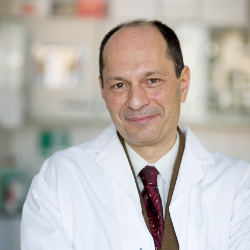
Marco Durante
GSI Helmholtzzentrum für Schwerionenforschung
Marco Durante is Director of the Biophysics Department at GSI Helmholtz Center for Heavy Ion Research (Darmstadt, Germany) and Full Professor of Physics at the Technical University of Darmstadt. He got his Ph.D. in Physics in 1992 at the University Federico II in Italy, and has dedicated his research efforts to the biophysics of high-energy charged particles, with applications in cancer therapy and space radiation protection. He is generally recognized as world leader in the field of particle radiobiology and medical physics and is co-author of over 450 papers in peer-reviewed scientific journals (h-index=56) and one patent on proton therapy. Prof. Durante has been awarded several prizes for his contributions to charged particle biophysics, including the 2013 Bacq & Alexander award of the European Radiation Research Society (ERRS), and the 2020 Failla award of the Radiation Research Society (RRS). He is recipient of an ERC Advanced Grant in 2020 on particle therapy.
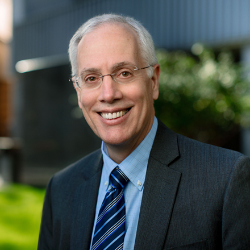
Robert Foote
Mayo Clinic
Robert Foote is an Emeritus Professor of Radiation Oncology at the Mayo Clinic College of Medicine and Science. His research interests include treatment of malignant and benign tumors of the head and neck region (including endocrine neoplasms such as thyroid and parathyroid cancer) and skin. Dr. Foote also has research interests in the prevention and management of acute and chronic effects of radiation such as, mucositis, xerostomia and carotid artery stenosis. Much of his research has been conducted in collaboration with the Mayo Clinic Cancer Center, Alliance for Clinical Trials in Oncology and NRG Oncology.
Dr. Foote graduated from the University of Utah School of Medicine and completed his residency in radiation oncology at the Mayo Clinic School of Graduate Medical Education. He was appointed as Professor of Radiation Oncology at the Mayo Clinic College of Medicine and Science in 1999 and served as the Chair of Department of Radiation Oncology at Mayo Clinic from 2009 to 2019. Dr. Foote is also the recipient of numerous honors and awards. He was inducted as a Fellow of the American Society for Radiation Oncology (ASTRO) in 2010, and was also the recipient of the American Board of Radiology Distinguished Service Award (2012) and Mayo Clinic Distinguished Clinician Award and Excellence in Leadership Award (2016).
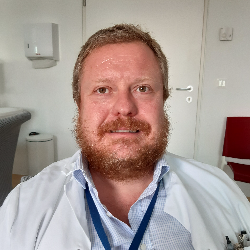
Piero Fossati
MedAustron
Piero Fossati is the Scientific Director and the Director of the carbon ions program at MedAustron.
He has received his first master degree in Biomedical Engineering at the University of Rome (I); subsequently he graduated in Medicine and Surgery at the University of Rome (I). He received his specialization in Radiotherapy at the University of Milan (I). He did a one-year post specialization fellowship at the carbon ion facility of the National Institute of Radiological Sciences (NIRS) in Chiba (JP). He has participated in establishing the clinical program of the Italian protons and carbon ions radiotherapy center (CNAO) in Pavia (I). His main interest has always been the clinical use of carbon ion radiotherapy with a special focus on the issues related to the different RBE models used in Japanese and European facilities.
He is author of more than 50 papers in peer-reviewed journals including Lancet Oncology, Annals of Oncology, Radiotherapy and Oncology, International Journal of Radiotherapy Oncology Biology and Physics, etc. He has also served as an ad hoc reviewer for several journals in the field of radiotherapy and Medical Physics.
He is co-author of the ICRU report 93 on “PRESCRIBING, RECORDING, AND REPORTING LIGHT ION BEAM THERAPY”
He has been principal investigator and co-investigator in trials investigating Sarcomas, GI cancers and head and neck cancers.
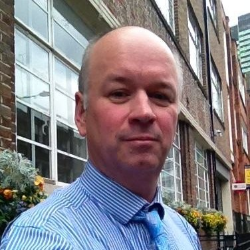
Frederic Genin
IBA Proton Therapy North America
Frederic Genin is currently the President of North America Proton Therapy for IBA, a Belgium based particle therapy manufacturer and service provider. Frederic has spent the past 20 years dedicated to particle therapy innovation and development. Prior to his current role, Frederic has held positions as the Chief Product and Marketing Officer, Executive VP of Product Management and Vice President of R&D for proton therapy at IBA. During this time Frederic helped to develop and implement Pencil Beam Scanning, Cone-Beam CT, IMPT and a host of other proton therapy applications. Frederic will continue to play a vital role in the future of particle therapy as we pioneer DynamicARC® therapy, ConformalFLASH® Therapy and Carbon Therapy.
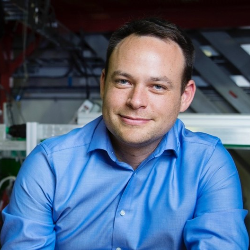
Alexander Gottberg
TRIUMF
Alexander
Gottberg is Department Head - Targets and Ion Sources at TRIUMF and Adjunct
Professor - Department of Physics and Astronomy, University of Victoria. He is
an expert on high-power particle beam applications in fundamental science and
medicine, including the development of beam-intercepting devices, such as
targets, beam conversion systems, beam windows and dumps. Dr. Gottberg is
currently leading the development of three new high-power radioisotope
production systems for a broad range of scientific, medical and industrial
applications within TRIUMF’s flagship project, ARIEL. Through a network of
international collaborations and appointments, he is broadly involved in
accelerator-based research projects world-wide.
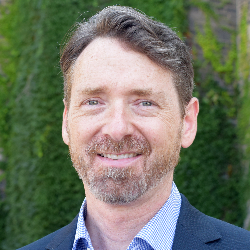
David Hodgson
Princess Margaret Cancer Centre - University Health Network
David Hodgson is a Professor in the Department of Radiation Oncology, and the Institute for Health Policy, Management and Evaluation, University of Toronto. He is the Medical Director of the Pediatric Oncology Group of Ontario (POGO), and holds the POGO Chair in Childhood Cancer Control at the University of Toronto. In addition to practicing radiation oncology in the lymphoma and pediatric site groups at the Princess Margaret Cancer Centre, Dr. Hodgson serves on the Hodgkin Lymphoma Steering Committee of the Children’s Oncology Group. His research is primarily focused on improving the treatment of pediatric and young adult patients, specifically by better understanding the long-term late effects of treatment and how they relate to optimally managing contemporary patients. Dr. Hodgson is the author of over 100 manuscripts in the field of lymphoma and long-term survivorship, and his work has been cited in publications in five languages, and in the NIH President’s Cancer Panel Report, and the Strategic Plans of the Department of Veterans Affairs and the UK National Health Service.
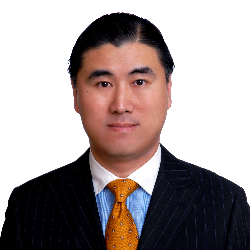
Joe Ting-Chang Hsu
Bdot Medical
Joe Ting-Chang Hsu obtained his BA in International
Relations at the University of Tsukuba, Japan. From 1995 to 2018, Joe worked
for the Ministry of Foreign Affairs of Taiwan ROC as foreign service officer
and retired from the Ministry as a career counselor. He actively promoted and achieved bilateral
and multilateral agreements and MOUs between Taiwan and Japan, EU, US in the
fields of environmental protection, sustainable development, high-speed rail,
cyber security, nuclear power, disaster prevention and reduction, defense
industry and medical (particle radiotherapy) cooperation. He also served as one
of the chief negotiators for Taiwan in the APEC Summit (2010), Great East Japan
Earthquake (2011), and Taiwan-Japan Fishery Talk (2013). His interests in negotiation
and research include international relations, climate change, regional military
balance, emergency disaster relief, energy (including nuclear and renewables),
particle radiotherapy, high-speed rail and digital economy.
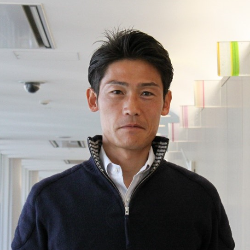
Taku Inaniwa
National Institutes for Quantum and Radiological Science and Technology (QST)
Taku Inaniwa, Ph.D, is a group leader of treatment beam research group at the Institute for Quantum Medical Science, National Institutes for Quantum and Radiological Science and Technology (QST) in Japan. His research focuses on developing dose calculation algorithms and biological models used for charged particle therapy treatment planning.
He has contributed more than 100 peer reviewed publications. Three of his first author publications have been selected as Highlights from Physics in Medicine and Biology. He is a member of international scientific advisory board of the journal. For his works, he has received several national and international awards.
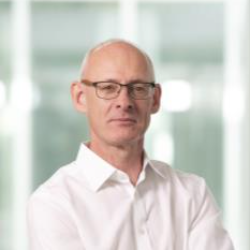
Oliver Jakel
German Cancer Research Center (DKFZ)
Oliver Jäkel is an expert in radiation therapy physics with
emphasis on ion beams and MR-guided radiotherapy. His pioneering work in light
ion beam radiotherapy started 20 years ago and with his longstanding
experience, he is a recognized expert in the field. When joining the dkfz, he
focussed the division on on image guided radiotherapy. His vision is that
real-time image guidance provides a possibility to deliver to the best
treatment for each patient adapted to the daily anatomical situation. He is
convinced that this is the next big leap in radiotherapy, allowing precise
adaption of the treatment not only in space but also in time. The long term
goal is to introduce MR guidance also for ion beams.
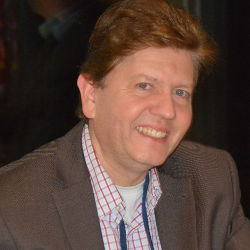
Oliver Kester
TRIUMF
Oliver Kester is Adjunct Professor of Accelerator Physics at the University of Victoria and Director, Accelerator Division at TRIUMF, BC, Canada. His research involves the production, transport and acceleration of intense charged particle beams, and of beams of highly charged ions.
He received his PhD in Applied Physics from the Goethe-University of Frankfurt in 1996 and was a postdoctoral fellow at Munich and scientific associate at CERN. He assumed faculty positions at LMU Munich, Michigan State University and Frankfurt University since 2001. Dr. Kester did spearhead the system development and construction of the linear accelerators of REX-ISOLDE at CERN and HITRAP at GSI.
Prior to his appointment as Director Accelerator Division of TRIUMF, Dr. Kester did lead the Accelerator Division at GSI Darmstadt in Germany and the subproject FAIR accelerators. Dr. Kester has published more than 95 peer reviewed papers on a variety of topics in the field of accelerator physics.
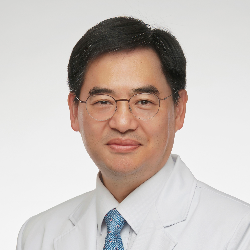
Yong Bae Kim
Yonsei University
Yong Bae Kim has a broad background in radiation oncology, with specific training and expertise in breast and gynecologic cancers. Dr. Kim has been devoted to Chair, Division of Gynecologic cancer (2015~2019), and Breast cancer (2021~present), Korean Radiation Oncology Group (KROG). For the last decade, he has also been devoted to performing multi-institutional clinical trial including RT-QA, and serving as an institutional principal investigator of NRG since 2019. Dr. Kim hopes to expand the infrastructure for clinical trial using radiotherapy in Korea, and train the oncologists to perform clinical trial. He has over 150 peer-reviewed publications on these topics. Recently, Dr. Kim published the paper regarding KROG 08-06 in “JAMA Oncology”. Dr. Kim has worked on carbon ion therapy project for last five years as a Vice Director, Construction Operation Division for Heavy Ion Therapy System, Yonsei University Health System, Seoul, Korea.
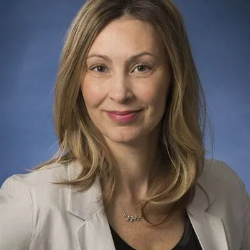
Marianne Koritzinsky
Princess Margaret Cancer Centre - University Health Network
Marianne Koritzinsky is a Scientist at the Princess Margaret
Cancer Centre in Toronto. She is Associate Professor and Director of Research
at the Department of Radiation Oncology, and Full member of the Institute of
Medical Science, University of Toronto.
Research in Dr. Koritzinsky's laboratory is focused on
vulnerabilities in cancer that emerge as a consequence of the tumor
microenvironment. Tumor hypoxia confers poor patient prognosis due to
resistance to radiation and chemotherapy, and stimulation of a more aggressive
phenotype. The aim of Dr. Koritzinsky’s research program is to increase our
understanding of molecular and cellular responses to hypoxia, with the ultimate
goal of targeting these responses to improve cancer treatment efficacy,
mitigate cancer aggressiveness and improve patient outcomes. Research is
focused on determining how cancer cells regulate metabolism, redox homeostasis
and secretion capacity.
Dr. Koritzinsky is a recipient of the ESTRO-Juliana Denekamp
research award, the Terry Fox Research Institute New Investigator award, the
Radiation Research Society Michael Fry award and the Department of Radiation
Oncology Excellence in Research Leadership Award.
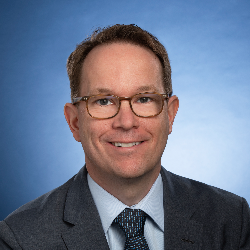
Daniel Letourneau
Princess Margaret Cancer Centre - University Health Network
Daniel Letourneau is the Associate Head of Clinical Affairs
in the Department of Medical Physics at the Princess Margaret Cancer Centre,
UHN. He is also an Associate Professor in the Department of Radiation Oncology,
University of Toronto, and an Affiliated Scientist of the Techna Institute,
UHN. Dr. Letourneau obtained his MSc in
Medical Physics at Laval University and his PhD at the University of Toronto.
Dr. Letourneau’s research focuses on quality control in radiation therapy,
including the development of novel QC methods, automation of workflows,
integration of QC systems and optimization of machine performance. More
recently, Dr. Letourneau is co-leading a multidisciplinary team to implement a
FLASH research program in physics and radiobiology at UHN. He has obtained a Canadian Foundation for
Innovation grant to support the acquisition of a FLASH irradiator. The team is developing novel detectors for
FLASH dose rate measurements and will probe the underlying FLASH mechanisms in
terms of tumor microenvironment and immune system response.
In addition to his strong publication record and leadership
in research projects on dosimetry, quality control, image-guided radiation
therapy and FLASH, Dr. Letourneau also has many successful patents and
commercialized technologies. Notably, Dr. Letourneau led the team responsible
for developing AQUA, a software application that centralized all quality
control tests for a radiation therapy department, improving workflows and
safety. AQUA was successfully commercialized through Acumyn Inc, a start-up company
created by UHN, where he served as its inaugural Chief Technology Officer.
Acumyn has since been acquired by Elekta, and AQUA is now in use around the
world.
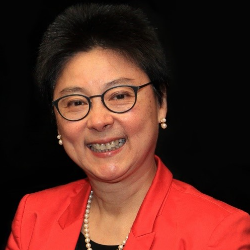
Fei-Fei Liu
Princess Margaret Cancer Centre - University Health Network
Fei-Fei Liu is the Chief of the Radiation Medicine Program and Head of the Department of Radiation Oncology at the Princess Margaret Cancer Centre, as well as the Professor and Chair of the Department of Radiation Oncology at the University of Toronto. Dr. Liu is also a Senior Scientist at the Princess Margaret Cancer Research Institute, holds the inaugural University of Toronto/Princess Margaret Peter and Shelagh Godsoe Chair in Radiation Medicine, and as well, serves as the Past Chair of the Medical Advisory Board at the University Health Network.
Dr. Liu’s research program has been focused on investigating and developing novel molecular therapeutic strategies for human malignancies, delivered in conjunction with radiation therapy, along with investigating molecular aberrancies of several human malignancies including breast, and head/neck cancers. Dr. Liu has over 200 peer-reviewed publications on these topics, and has filed three patents. She currently holds peer-reviewed research funding from agencies including the Canadian Institutes of Health Research (CIHR) and the Canadian Cancer Society Research Institute (CCSRI). She is also the founding Director of a $1.9M Terry Fox Foundation Research Training Initiative, entitled “Strategic Training in Transdisciplinary Radiation Science for the 21st Century (STARS21)”, with the objective to train the next generation of trans-disciplinary scientists in Radiation Medicine. Recently, her lab has shifted its focus to unraveling the mechanisms and identifying therapeutic strategies of radiation fibrosis and lymphedema; two important late normal tissue toxicities with significant functional morbidity.
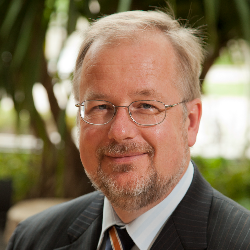
Thomas Mackie
University of Wisconsin
Thomas “Rock” Mackie has a BSc in Physics (1980) from the University of Saskatchewan and a PhD in Physics (1984) from the University of Alberta. He was a Professor at the University of Wisconsin from 1987 and currently has emeritus status. He has been awarded the Coolidge Gold Medal from the AAPM (2014), the Gold Medal from ASTRO (2019) and the John Mallard Award for Innovation from the IOMP (2019) and is Fellow of the National Academy of Inventors. He is a commissioner of the International Commission on Radiation Units and Measurements (ICRU) as well as the Vice-Chair of its Board. Rock Mackie has a long entrepreneurial career both as an academic and since retiring as a professor. He is best known for TomoTherapy, an image-guided intensity modulated radiotherapy company. He discloses that he is a co-founder of Leo Cancer Care, which is developing upright radiotherapy.
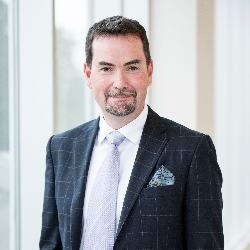
Miller MacPherson
The Ottawa Hospital
Miller MacPherson received his Ph.D. from Carleton
University, and did his clinical physics training at The Ottawa Hospital Cancer
Centre, where he worked for 10 years as a staff physicist, implementing
programmatic initiatives in automated workflow and integrated planning and
delivery strategies In 2008, he joined
Princess Margaret Cancer Centre and was named Head of Physics at the Carlo
Fidani Peel Regional Cancer Centre at Credit Valley Hospital, where he oversaw
a rapid expansion of radiation infrastructure and technology deployment,
including the first commercial VMAT implementation in Canada. He has been Head of Physics at The Ottawa
Hospital since 2014, and is the inaugural Head of the Division of Medical
Physics, Department of Radiology, at the University of Ottawa.
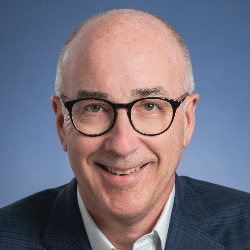
Michael Milosevic
Princess Margaret Cancer Centre - University Health Network
Michael Milosevic is a clinician scientist and radiation oncologist at the Princess Margaret Cancer Centre and Professor and Vice-Chair (Research) in the Department of Radiation Oncology at the University of Toronto. His clinical practice is in the management of gynecologic cancers. His research is focused on improving radiotherapy effectiveness and patient outcomes by targeting tumor hypoxia and harnessing the radiation-induced antitumor immune response. He has led numerous collaborative projects, including clinical trials of new treatment approaches, and published over 230 peer-reviewed papers.
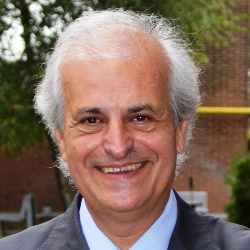
Roberto Orecchia
European Institute of Oncology (IEO)
Roberto Orecchia born in Turin, Italy, in 1952. He graduated from the University of Turin, in the post-doctoral period he obtained degrees in Radiotherapy, Medical Oncology and Diagnostic Imaging at the same University.
The first part of his career took place in Turin, up to 1994, when he moved to the University of Milan where he was Full Professor of Radiotherapy up to 2018 wherein currently holds the role of Emeritus Professor. During the same years he was also Head of the Department of Medical Imaging and Radiation Sciences of the European Institute of Oncology (IEO) in Milan, where from January 2015 he was also appointed Scientific Director, positions that he still maintains.
From 2010 till 2019, he has been also Scientific Director at the National Centre of Oncological Hadrontherapy (CNAO), the only Centre in Italy that uses particle therapy with both protons and carbon ions to treat tumours, and to date, he collaborates as Board Member of the CNAO.
He has a long-time active presence in many scientific societies. He is Steering Committee Member of the PTCOG, Board Member of the European Particle Therapy network (EPTN) of ESTRO, Board Member of the European Network on Light Ion Therapy (ENLIGHT), Fellow of the European Academy of Cancer Science, and was awarded by ESTRO Regaud Medail and Lifetime Achievement.
He was and is strongly involved in many project researches as investigator or coordinator, funded at national and international level. His clinical and research activities focus on various fields of radiotherapy and oncology, from the beginning characterized by a strong interest in innovation.
To date he has published 495 scientific articles in journals listed in the Pub-Med.

Harald Paganetti
Massachusetts General Hospital
Harald Paganetti is a Professor of Radiation Oncology at Harvard Medical School and Director of Physics Research for the Department of Radiation Oncology at Massachusetts General Hospital. He received his PhD in experimental nuclear physics in 1992 from the Rheinische-Friedrich-Wilhelms University in Bonn, Germany. He has been working in radiation therapy research since 1994 and has made many significant contributions to the field of radiation oncology physics and biology. He has published more than 270 peer-reviewed publications and numerous book chapters and edited 3 books on proton radiation therapy. His main research interests include planning and delivery uncertainties in radiation therapy, including biological effect modeling, Monte Carlo dose calculation, as well as advanced optimization and imaging techniques. His current work specifically focuses on understanding toxicities and systemic effects of radiation treatments on the immune system. In addition to his research, he serves on editorial boards and is a member of task-groups and committees for various associations such as the National Council on Radiation Protection and Measurements (NCRP) and the American Society for Therapeutic Radiology and Oncology (ASTRO).
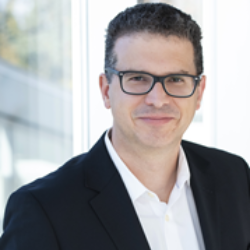
Jason Pantarotto
Cancer Care Ontario
Jason Pantarotto is the Provincial Head of the Radiation Therapy Program at Ontario Health (Cancer Care Ontario) and has held that role since January 2021. Prior to that he served as the Head of the Radiation Medicine Program at The Ottawa Hospital and Division Head for Radiation Oncology at the University of Ottawa for over 9 years. His education includes a degree in Applied Science from Queen’s University, a medical degree from Western University, a residency in Radiation Oncology from the University of Ottawa and a fellowship at the VU University Medical Centre in Amsterdam, The Netherlands. He joined The Ottawa Hospital in 2008 and is an Associate Professor.
Dr. Pantarotto has published on ablative radiotherapy for chest and abdominal tumours, advanced radiotherapy techniques for moving targets and factors related to process flow within radiation medicine. He has been an active participant in transforming cancer care in Ottawa since 2013, with a focus on rapid lung cancer diagnosis and improved integration with the therapeutic specialties. Provincially he has been involved in a wide range of Cancer Care Ontario initiatives, mainly aimed at improving quality. Dr. Pantarotto is a graduate of the Physician Leadership Development Program at the Schulich School of Business.
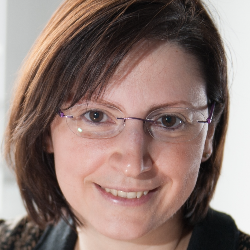
Katia Parodi
Ludwig Maximillian University
Katia Parodi received her Ph.D. in Physics from the University of Dresden, Germany, in 2004. She then worked as postdoctoral fellow at Massachusetts General Hospital and Harvard Medical School in Boston, USA. In 2006 she returned to Germany as tenured scientist and group leader at the Heidelberg Ion Therapy Center, obtaining in 2009 her Habilitation from the Heidelberg University. Since 2012 she is full professor and Chair of Medical Physics at the Physics Faculty of the Ludwig-Maximilians-Universität München (LMU) in Munich, where she initiated a dedicated curriculum for Medical Physics within the Physics Master of Science study.
Her main research interests are in high precision image-guided radiotherapy with a special focus on ion beams, from advanced computational modeling to experimental developments of novel methods for imaging and in-vivo ion range monitoring for pre-clinical and clinical applications. Katia Parodi has been invited speaker and committee member at many conferences, contributed to over 200 publications in peer reviewed journals, 12 book chapters and a couple of patents. For her work, she received several national and international recognitions, including the Behnken Berger Award in 2006, the IEEE Bruce Hasegawa Young Investigator Medical Imaging Science Award in 2009, the AAPM John S. Laughlin Young Scientist in 2015 and the awarding of an ERC Consolidator grant in 2016. In 2017-2018 she served as president of the German Society for Medical Physics, and is since 2021 the Editor-in-Chief of the journal Physics in Medicine and Biology.
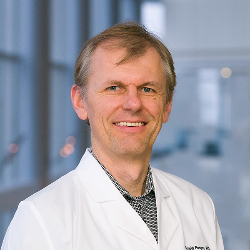
Arnold Pompos
University of Texas Southwestern
Arnold Pompos obtained his MS in High Energy Theoretical
Physics from Charles University in Prague, Czech Republic in 1994, and his PhD
in High Energy Experimental Physics from Purdue University, West Lafayette,
Indiana, USA in 2002. During his graduate studies and until starting his
Medical Physics residency in 2006, he was working on an experimental search for
particles predicted by theories extending beyond the current Standard Model of
Particles and Fields at the Fermi National Accelerator Laboratory in Illinois,
USA. After finishing his Medical Physics residency, Dr. Pompos became a
diplomat of the American Board of Radiology in 2010 in the field of Therapeutic
Radiation Oncology Medical Physics. In 2009, he joined the UT Southwestern
Medical Center in Dallas, where he currently practices Medical Physics in the
rank of Associate Professor. Since 2019, Dr. Pompos is the Director of
Strategic Expansion Planning.
During his UTSW tenure, Dr. Pompos has served as the
Associate Director for the Medical Physics residency program, Director of
Clinical Medical Physics, Director of Medical Physics Certificate Program, Lead
Physicist for planning and building the adaptive radiation therapy (Ph2)
expansion building, Lead Physicist for MRI Linacs and MR based adaptive therapy
program and Lead Physicist for UTSW effort to Plan the First Heavy Ion Therapy
and Research Center in the US. Dr. Pompos has co-organized five International
Symposia on Ion therapy held in USA, Japan and Italy. In 2015, he was a
co-recipient of the P20 Planning Grant awarded by the US National Institutes of
Health for Planning for a National Center for Particle Beam Radiation Therapy
and Research. He was a co-investigator and lead physicist for CIPHER, the
International Phase 3 Randomized Clinical Trial comparing conventional
radiation therapy with Carbon Ion therapy for locally advanced unresectable pancreatic
cancer.
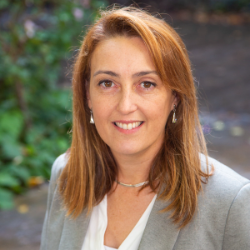
Yolanda Prezado
Institut Curie
Yolanda Prezado is the head of the “New Approaches in
Radiotherapy (NARA)” team at Institut Curie (France). The main research avenue of the NARA team is
the conception and development of innovative radiotherapy techniques based on
distinct dose delivery methods.
After some years working as a clinical medical physicist,
she became beamline scientist at the Biomedical Beamline of the European
Synchrotron Radiation facility. There, she stayed from 2007 to 2011 and
exploring the limits of spatial fractionation of the dose with techniques like
Minibeam Radiation Therapy. From 2011 onwards, she is a tenured scientist at
French National Research Centre (CNRS), where she pioneered the combination of
spatial fractionated radiotherapy and charged particles. In 2019, she moved to
Institut Curie to lead a new group in radiobiology.
She has acted as Chair of Science Committee of European
Federation of Medical Physics (2019-2020). She is currently the
vice-spokesperson of the International Biophysics Collaboration.
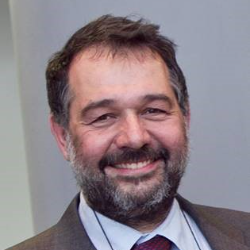
Marco Pullia
National Centre for Oncological Treatment (CNAO)
Marco Pullia got his degree in Physiscs (110/110 cum laude) at the Università degli studi di Milano in 1992 with a thesis on a study about FELs and LINACs titled “New techniques for acceleration: CLIC and ELFA”.
He then got a PhD (with honors) in physics at the Université Claude Bernard - Lyon 1 in 1999 with a thesis on slow extraction from synchrotrons titled “Dynamics of slow extraction and its influence on transfer line design”. He contributed to the PIMMS study and successively he participated to the construction of the CNAO accelerator where he was responsible of design and operation.
He is presently director of the research and development department of the CNAO foundation in Pavia, Italy.
His research interests are in the improvement of hadrontherapy, both on the side of accelerator development and on the side of the improvement of treatment delivery and verification.
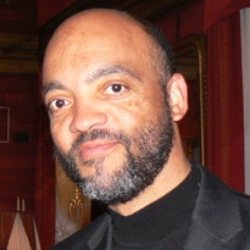
Mack Roach
University of California San Francisco
Mack Roach is a Professor of Radiation Oncology &
Urology in the Department of Radiation Oncology at the University of
California, San Francisco. He is recognized as an authority on the treatment of
localized prostate cancer, and he has been involved in research that has
included the application of image-guided intensity-modulated radiation therapy
(IMRT), defining the optimal imaging modalities (e.g., MRI) and criteria for
selecting specific targets for radiation, while minimizing treatment related
complications for 30 years. Dr. Roach helped to pioneer the use of endorectal
Magnetic Spectroscopy imaging as a means of monitoring prostate cancer
outcomes. He served on the American College of Radiology (ACR) Appropriateness
Criteria Guidelines for defining how men with prostate cancer should be treated
with radiotherapy from 1996 thru 2006, and on the NCI Intensity Modulated
Radiotherapy Working Group. A major research interest of his has been to reduce
the risk of erectile dysfunction associated with treatment of prostate cancer
with radiation. He has been a recipient of numerous awards, including the
American Cancer Society Career Development Award, the UCSF Health Net Wellness
Award and an honorary Doctorate degree from Morehouse. Dr. Roach is also a
Fellow of the ACR and ASTRO. He has co-authored more than 200 peer-reviewed
journal articles, book chapters and/or editorials and served on numerous
editorial boards. He was appointed (2013) by President Obama to serve on a
6-year term on the National Cancer Advisory Board (NCAB) and previously served
on the NCI BSA (Board of Scientific Advisors). He has led two large Phase III
Trials evaluating the role of whole-pelvic radiation in men with high-risk
prostate cancer, enrolling nearly 4000 men on these two studies. Dr. Roach is currently
very active in the efforts to develop the capacity to harness heavy charged
particles for the treatment of cancers in collaboration with Particle Centers
here and abroad.
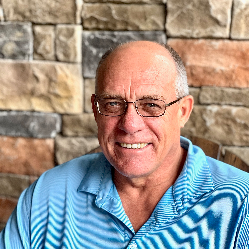
Niek Schreuder
Leo Cancer Care
Niek Schreuder (PhD) is the Chief Scientific Officer for Leo Cancer Care. He is a board certified (DABR) medical physicist and fellow of the AAPM with significant experience in all aspects of radiotherapy. Niek is an expert in proton radiation therapy systems and has been involved in commissioning, training professionals and first treatments at nine proton therapy facilities and one neutron therapy facility over the past 31 years. He has been responsible for training and coordinating training for professionals many radiation therapy facilities. Niek has held roles in management and medical physics at Provision Healthcare, ProCure Treatment Centers and the Midwest Proton Radiotherapy Institute. He started his career in particle therapy as a medical physicist working at the radiation therapy facilities (neutron, proton and X-rays) at iThemba Labs in South Africa. His passion is developing new technologies to advance the field of particle radiation therapy to benefit cancer patients.
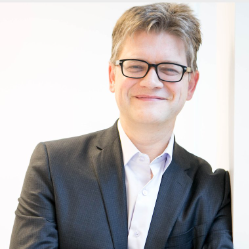
Jan Seuntjens
Princess Margaret Cancer Centre - University Health Network
Jan Seuntjens is a Belgian-Canadian medical radiation
physicist and Head of Medical Physics at the Princess Margaret Cancer Centre.
He is Professor in the Departments of Radiation Oncology and Medical Biophysics
at University of Toronto and holds the Orey and Mary Fidani Chair in Radiation
Physics and the James McGill Professor designation. He is Fellow of the AAPM,
COMP and CCPM. Dr. Seuntjens has a background in medical radiation physics,
dosimetry and Monte Carlo techniques. He has been actively involved with
numerous committees in the AAPM, the IAEA and the ICRU. He chairs AAPM’s
Science Council, overseeing over 170 committees, subcommittees and workgroups.
Dr. Seuntjens has co-authored over 270 peer-reviewed publications and books. He
was recipient of two AAPM Farrington Daniels awards and two Sylvia Fedoruk
awards for best paper in medical physics. Dr. Seuntjens launched the Medical
Physics Research Training Network (MPRTN) supported by the Canadian Natural
Sciences and Engineering Research Council (NSERC) CREATE program. Dr. Seuntjens
work has led to commercial products in the radiotherapy quality assurance space
and he helped founding the Montreal-based AI startup company Gray Oncology
Solutions.
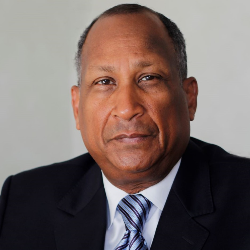
Howard Shearer
Hitachi
Howard Shearer has been with Hitachi since 1984 and is currently
the Chief Executive Officer of Hitachi Canada Ltd (HCL). He obtained his
Bachelor’s degree in electric engineering from McMaster University and a
Masters of Laws from the University of Toronto. With over 40 years of experience
in the High Tech, Energy and Industrial sectors, Mr. Shearer has accumulated
knowledge and experience in the areas of semiconductors, optical transmission,
power generation, transmission and distribution, consumer (wholesale and
retail), rail transportation, medical/healthcare, big data analytics, and more.
Before his appointment as CEO, Mr. Shearer served in numerous
positions with Hitachi, including Vice-President & General Manager of HCL's
Semiconductor division, Chairman of Hitachi Power Systems Canada Ltd, and a
member of HCL’s board of directors.
Mr. Shearer is the recipient of several awards, including
the University of Toronto Arbor Award (2003), the University of the West Indies
Vice Chancellor Award (2012), and the L.W.Shemilt Distinguished Engineering
Alumni Award from McMaster University (2016). In 2019, he was inducted as a Fellow
of the Canadian Academy of Engineering (FCAE).
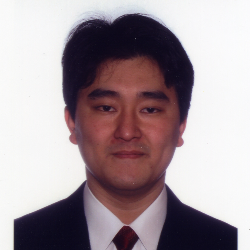
Takashi Shimokawa
National Institutes for Quantum and Radiological Science and Technology (QST)
Takashi Shimokawa obtained his Ph.D in Medical Science from
University of Tokyo Department of Radiological Health’s Graduate School of
Medicine in 2000. Dr. Shimokawa is engaged in a wide range of basic biological
research of heavy ion beams, from cancer and noncancer therapy research to
breeding research. He has held various positions at National Cancer Center
Research Institute’s Biochemistry Division, the University of Tokyo’s Human
Genome Center, the Karolinska Institutet’s Department of Biosciences and
Nutrition and the National institute of Radiological Sciences (NIRS)’s Research
Center for Charged Particle Therapy. In 2021, Shimokawa was appointed as the
Section Manager of the Radiation Effect Research Group in Deparment of
Accelerator and Medical Physics in the National Institutes for Quantum Science
and Technology (QST).
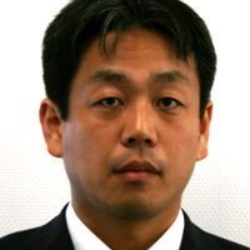
Toshiyuki Shirai
National Institutes for Quantum Science and Technology (QST)
Toshiyuki Shirai is the Director of the Department of Accelerator and Medical Physics at the National Institutes for Quantum Science and Technology (QST) in Chiba, Japan. Dr. Shirai received his PhD degree from the Faculty of Science, Kyoto University. After graduation, he worked as a Research Associate in accelerator and beam physics at the Institute for Chemical Research, Kyoto University. He then served as Team Leader (2008-2010) and Program Leader (2011-2015) in the Research Center for Charged Particle Therapy at the National Institute of Radiological Sciences (NIRS) before his appointment as the Director of Department of Accelerator and Medical Physics at QST in 2016. At QST, his research interests are in medical physics and medical accelerators for particle therapy, especially carbon-ion radiotherapy. He has also served as a Councilor of the Particle Accelerator Society of Japan.
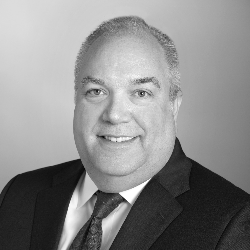
Jeff Simmons
Toshiba
Jeff Simmons serves as Toshiba America Energy System Corp.’s
senior vice president of marketing and sales, and general manager of its new
technology business unit. In these roles he leads Toshiba’s corporate
development, new power systems, and heavy ion cancer treatment businesses in
North America. Jeff also serves as chairman of the boards of Toshiba’s
installation and maintenance services companies, TurbinePROs, LLC and its
Canadian subsidiary TurbinePROs R. E. Services, Ltd., and he is a member of the
board of directors for EtaPRO LLC, Toshiba’s newly acquired global asset
performance and condition monitoring business. A leader in infrastructure
project facilitation, Jeff and his teams have developed more than 10 GW of
power projects and originated dozens of capital-intensive health care,
commercial and industrial projects. All together these include over $13 billion
in realized origination and sales transactions. Jeff has also held key roles in
realizing more than $5 billion in equity and asset mergers, acquisitions, and
divestitures. Jeff holds a BS in civil engineering from Southern Illinois
University and an MBA from Southern Methodist University. He is also a graduate
of the executive leadership program at the University of Texas at Dallas and is
a member of the Tau Beta Pi Engineering Honorary Society, the American Nuclear
Society, and the Particle Therapy Co-Operation Group of North America.
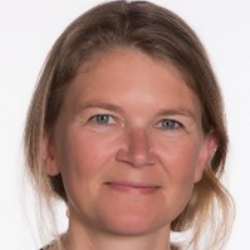
Brita Singers Sørensen
Aarhus University
Brita
Singers Sørensen is a Professor in the Department for Experimental Clinical
Oncology and Danish Centre for Particle Therapy at Aarhus University Hospital
in Denmark. Dr. Sørensen finished her Masters in Molecular Biology from Aarhus
University in 2004 and her PhD in Medicine from the same institution in 2009.
She worked as a Postdoc at Aarhus University from 2009, and at the Department
of Integrative Oncology, British Cancer Research Institute,
Vancouver, Canada from 2012-2013.
Dr. Sørensen
has been working within the fields of tumor microenvironment, radiation biology
and particle radiobiology for the last 15 years. Her research has involved both
in vitro and in vivo models, and has included studies in the area of modifiers
of the tumor microenvironment and thus improvement of radiation therapy. She
has been leading a range of projects on the biological effects of particle beam
radiation and the impact in the normal tissue, which has involved FLASH in vivo
experiments.
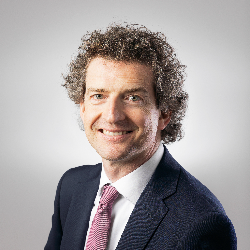
Markus Stock
MedAustron
Markus Stock has dedicated his professional career to improving treatment outcomes of radiotherapy for cancer patients by implementing new technology, starting from high precision radiotherapy using stereotactic techniques, as well as IMRT, IGRT, VMAT and personalized adaptive radiotherapy. Dr. Stock was part of the team at the Medical University of Vienna who implemented VMAT for clinical treatments on Elekta machines for the first time. He also conducted a short research sabbatical at the University Medical Centre in Utrecht, where he was involved in the MR-Linac project. After finishing the tenure track at the Medical University in Vienna 2014, Dr. Stock had the chance to participate in building up a dual particle facility in Austria as Head of Medical Physics of the MedAustron Ion Therapy Centre. Under his supervision and guidance, MedAustron started first proton treatments in 2016 and first carbon ion treatments in 2019. Dr. Stock has been accredited as Medical Physics Expert since 2007 and currently gives lectures in three different Universities or University of Applied Sciences. He is also acting as a reviewer for more than 15 Journals, as well as international research proposals and conference contributions. Finally, Dr. Stock has also contributed to more than 60 publications as first-, senior, or co-author in peer-review journals.
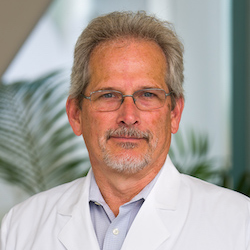
Michael Story
University of Texas Southwestern
Michael Story holds the David A. Pistenmaa, MD, PhD Distinguished Chair in Radiation Oncology, is Vice-Chair of the Department of Radiation Oncology, Chief of the Section of Molecular Radiation Biology, and Director of the Pre-Clinical Radiation Core Facility. He is also a Board Member for the NCRP and an editor for multiple journals. His research is focused on four areas associated with radiation exposure: (1) delineating the effects of novel pentaazamacrocyclic compounds that can act as either radioprotector or radiosensitizer; (2) exploiting the biological effects of tumor-treating fields in combination with radiation and/or chemotherapy agents; (3) developing biomarkers of the radioresponse of lung and liver tissues to high LET radiation exposures, including the development of biomarkers of carcinogenic risk; and (4) enhancement of carbon ion radiotherapy for pancreatic and head and neck cancers. Dr. Story's research is funded by the NCI, NASA, the Cancer Prevention and Research Institute of Texas, and industry.
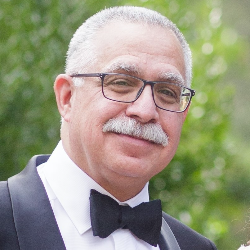
Harris Targovnik
Varian Medical
Harris Targovnik’s involvement in the Oncology
community spans over 30 years, starting at Mt. Sinai Medical Center in NYC where
he was involved in a major modernization program for the Radiotherapy program
and directed the NIH funded research program.
He has extensive experience in implementing new technology at the
clinical level and used that experience in two start-ups: NOMOS which brought the first commercial IMRT
planning and delivery system to market and Argus, where they a vendor neutral,
quality control information management system for Radiation Oncology, Radiology
and Mammography was launched. Ultimately,
he joined Varian in 2002 where he has held multiple positions in the QA
products business , guided the North American treatment planning and imaging
informatic business and most recently transitioned into a new role with
Varian’s Proton Solutions where he is working to bring new delivery technology
to our clinical partners.
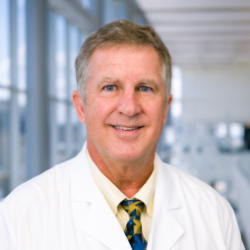
Robert Timmerman
University of Texas Southwestern
Robert Timmerman is
Professor of Radiation Oncology and Neurosurgery, Chair of Radiation Oncology,
and Effie Marie Cain Distinguished Chair in Cancer Therapy Research. His
primary practice involves the treatment of adult and children with brain
tumors.
Dr. Timmerman graduated from Iowa State
University with abachelor'sdegree in nuclear engineering and
amaster's degree in reactor physics from the University of Tennessee.
After finishing medical school in his home state of South Dakota, he completed
a residency in radiation oncology at The Johns Hopkins Hospital. He was the
principal investigator or co-investigator on several prospective trials
designed to evaluate the efficacy and toxicity of stereotactic body radiation
therapy in lung, liver, spine, and pelvic sites. He is the national principal
investigator of Radiation Therapy Oncology Group (RTOG) trials using this
therapy in patients with early stage lung cancer.
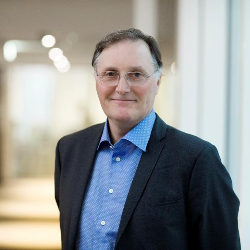
Erik Traneus
RaySearch
Erik Traneus has a Ph.D in experimental nuclear physics at
Uppsala University in Sweden. After the Ph.D. he did research in applied
nuclear physics at Uppsala University and neutron based diagnostics of DT
fusion plasmas at JET in Oxford. Erik became Assistant Professor in 1996.
Since 1998 Erik works in the medical software industry.
First at Helax and Nucletron working with physics algorithms for dose planning
(monte carlo and beam models for photons, electrons and protons).
In 1999 Erik joined RaySearch Laboratories AB where he is a
research scientist and sales manager for particle therapy solutions. The recent
years the main interest has been on fast algorithms for dose and RBE
calculations for proton and carbon ion therapy and range verification methods
by e.g. PET or prompt gamma.
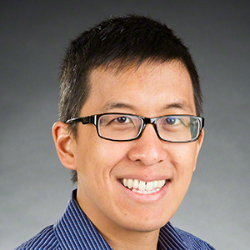
Derek Tsang
Princess Margaret Cancer Centre - University Health Network
Derek Tsang is a radiation oncologist at Princess Margaret Cancer Centre. He is an Assistant Professor in the Department of Radiation Oncology at the University of Toronto. He completed his medical training at Queen’s University, followed by residency at the University of Toronto. He obtained fellowship training in paediatric radiation oncology at St. Jude Children’s Research Hospital in Memphis, Tennessee, and has a Masters’ degree in clinical epidemiology at the Harvard T.H. Chan School of Public Health. Dr. Tsang joined the Princess Margaret Cancer Centre in 2017, where he is a member of the paediatric and adult central nervous system (CNS) tumour site groups. His research interests include evaluating re-irradiation for pediatric tumours and reducing the late effects of radiotherapy. His clinical practice includes pediatric oncology, adult neuro-oncology and stereotactic radiosurgery for benign neoplasms.

Hiroshi Tsuji
National Institutes for Quantum Science and Technology (QST)
Hiroshi Tsuji is a director general of the QST Hospital, National Institutes for Quantum Science and Technology (QST) . He is a radiation oncologist involved in the charged particle therapy with carbon-ions at present and also has the experience of proton therapy at Tsukuba University.
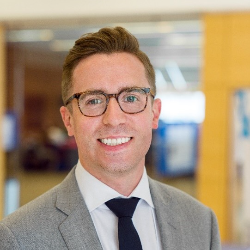
Michael Velec
Princess Margaret Cancer Centre - University Health Network
Michael Velec is appointed as a Radiation Therapist –
Clinician Scientist at the Princess Margaret Cancer Centre in Toronto, Canada,
and as an Assistant Professor in Radiation Oncology at the University of
Toronto. Michael completed his PhD in medical sciences at the University of
Toronto in 2014, and a postdoctoral fellowship at the Techna Institute in 2016.
He recently was awarded as a Fellow of Canadian Association for Medical
Radiation Technologists in 2021.
Dr. Velec has current research interests in deformable image
registration and dose accumulation for adaptive radiation therapy and
understanding radiation dose-responses, with a particular focus on liver
cancers. Ongoing projects include the development of new models of care for
radiation therapists that enable precision medicine and person-centered care.
Michael is also engaged in teaching both trainees and health professionals in
radiation medicine.
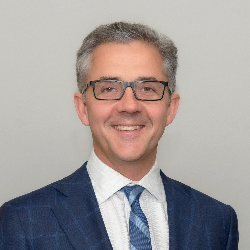
Bradly Wouters
University Health Network
Bradly Wouters is an internationally recognized leader and cancer researcher. He became Executive Vice President of Science and Research at UHN in 2016 and prior to that served as the Interim Director of Research at the Princess Margaret Cancer Centre since 2014. He joined UHN in 2008 as Senior Scientist and Director of the Princess Margaret Hypoxia Program, and has held faculty appointments at the University of Toronto in the Department of Medical Biophysics and the Department of Radiation Oncology since that time. Prior to joining UHN, Dr. Wouters was Professor and Head of Experimental Radiation Oncology at Maastricht University in the Netherlands. As EVP of Science and Research, Dr. Wouters is focused on creating an environment that incentivizes, facilitates, and rewards excellence in basic, translational, and clinical research across all elements of UHN.
Event Dates & Times
Thursday April 21, 2022
7:30 am – 8:30 pm EDT
Friday April 22, 2022
7:30 am – 5:00 pm EDT
Note: listed times are in Eastern Daylight Time
Event Locations
Sheraton Centre Toronto Hotel
Osgoode Ballroom, Lowest Level
123 Queen St W,
Toronto, ON
M5H 2M9
Virtual participation, via livestream. See confirmation email for details.
Important Notice
In-person participants: please monitor your own health status and do not attend if you are symptomatic in any way. Vaccinations are required at all Sheraton International events. Participants should be prepared to show proof of vaccination if asked and wear a mask at all times.
Information & Assistance
Conference Services
conferences@uhn.ca
We do not issue letters of invitation to international delegates. Administrative fees will apply to cancel registrations. We encourage you to finalize travel prior to registering.

 Copyright© 2017 | MYConference Suite Registration | D.E. Systems | All Right Reserved.
Copyright© 2017 | MYConference Suite Registration | D.E. Systems | All Right Reserved.